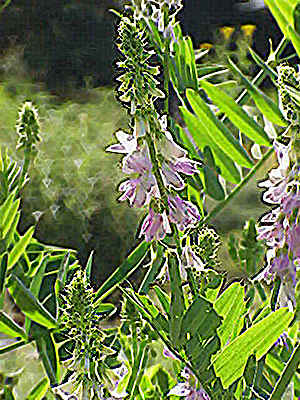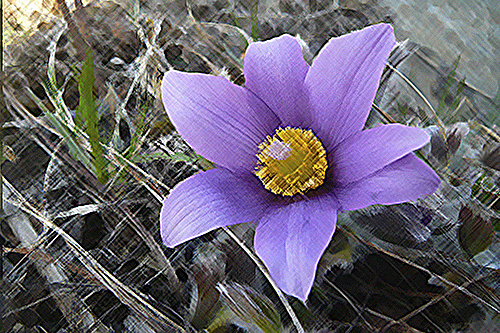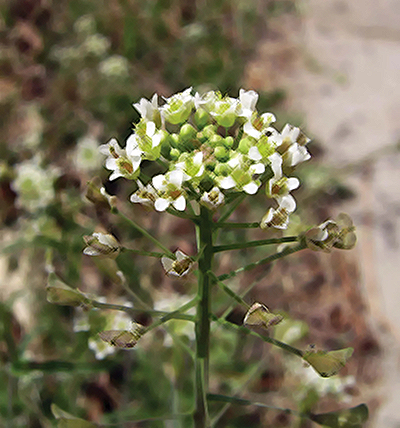Contents
Medicinal herbs can be very beneficial for women’s health and well-being. Many plants can alleviate menstruation pain (dysmenorrhea), balance the irregular menstrual cycle, and reduce hemorrhaging during excessive menstruation.
State of mind, emotions, and even character depend to a certain degree on hormonal balance. A woman’s body experiences cyclic oscillations of its sexual hormone level, which can provoke emotional imbalances more or less frequently.

These herbs for women do not exert a symptomatic action, easing pain or menstrual disorders. Still, they can even properly readjust the delicate hormone mechanism that periodically gives birth to menstruation. As in other phytotherapeutic fields, medicinal herbs have good preventative action on many women’s disorders and diseases.
When applied locally as vaginal irrigation, these top herbs for women act successfully against infections of the vagina and the neck of the uterus. During pregnancy and especially during breastfeeding, these herbs can also serve women well. Some plants increase milk production, and others decrease it. Phytotherapy can also provide practical solutions to natural breastfeeding disorders, such as nipple soreness and mammary gland inflammation (mastitis). Phytotherapy can also offer practical solutions.
Herbs for Women
Galactogenic Herbs
These plants promote milk secretion in breastfeeding women. They are usually taken orally in the form of herbal teas. The stimulant properties of these herbs on milk production are due to their essential oils.

Galactofuge Herbs
These herbs reduce or stop milk secretion in breastfeeding women. They are used when breastfeeding must be given up for any reason. These herbs are used both orally and in compresses on the breasts.
Uterine Antispasmodic Herbs
These herbs relax the spasms of the uterine muscles. This action alleviates dysmenorrhea and many female pelvic pains caused by uterine cramps.
The herbs also exert antispasmodic action, though not as specific, on other hollow organs, such as the intestine or the urinary pathways.

Oxytocic Herbs

These particular herbs produce contractions in the uterus. They have a similar action to oxytocin, though not so intense. Oxytocin is a hormone produced on the posterior lobule of the hypophysis, which makes the uterus experience muscular contractions, thus producing labor. Therefore, these plants are used to accelerate labor. However, if used during the first months of pregnancy, they could have abortifacient properties.
Emmenagogue Herbs
These particular herbs can produce or ease menstruation in women. As a rule, they have a balancing and normalizing effect on the menstrual cycle. We do not recommend them being used during pregnancy since they increase the risk of abortion.
Medicinal herbs can both increase and decrease milk production in breastfeeding women.
Menopause is a traditional stage in women’s lives in which all female physiological functions must adapt to a new hormonal situation whose main feature is a decrease in ovary functions. These herbs for women’s health can favorably contribute to easing this complex stage in their lives.
The medicinal herbs that balance hormones in females can significantly improve mental state and provide a sense of well-being.
DISCLAIMER: All content on this website is presented solely for educational and informational objectives. Do not rely on the information provided as a replacement for advice, diagnosis, or treatment from a qualified medical expert. If you are pregnant, nursing, or have any preexisting medical concerns, talk to your doctor before using any herbal or natural medicines.
REFERENCES
- George D. Pamplona-Roger, M.D. “Encyclopedia of Medicinal Plants.” George D. Pamplona-Roger, M.D. Encyclopedia of Medicinal Plants. Ed. Francesc X. Gelabert. vols. 2 San Fernando de Henares: Editorial Safeliz, 2000. 614, 615. Print. [herbs for women]
- National Center for Complementary and Integrative Health (NCCIH): https://www.nccih.nih.gov/
- HerbMed: http://www.herbmed.org/
- Mayo Clinic: https://www.mayoclinic.org/
- Cleveland Clinic: https://my.clevelandclinic.org/
- American Botanical Council: https://www.herbalgram.org/
